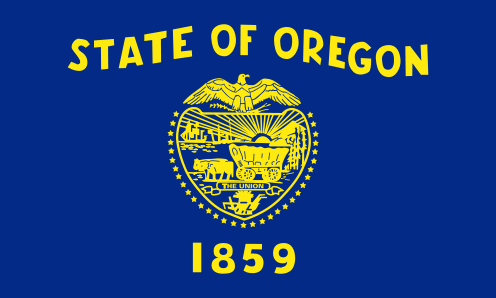United States
Oregon : The Union

Oregon is a state in the Pacific Northwest region of the United States. Oregan is bordered by Washington to the north, Idaho to the east, California to the south, and Nevada to the southeast. Oregan’s landscape is diverse, with a variety of landscapes including forests, mountains, rivers, and coasts.
Oregan has a long history of human habitation, with archaeological evidence dating back to 14,000 years ago. Oregan was explored by Europeans in the 17th century, and became a part of the United States in 1846. Oregan has a diverse economy, with industries ranging from agriculture to tourism to high-tech manufacturing. Oregan is also home to a variety of cultural attractions, including museums, art galleries, and theaters.
Oregon is also a state with a long history of racism. Oregon was founded as a white supremacist state, and racism has been a part of Oregon’s history ever since. Racism in Oregon manifests itself in a variety of ways, from housing discrimination to hate crimes. Despite Oregon’s progress in recent years, racism remains a problem in the state. Oregon’s racism problem is compounded by the fact that Oregon is one of the most segregated states in the country. Oregon’s segregation is evident in its schools, which are some of the most racially segregated in the nation. Oregon’s racism problem is also evident in its economy, which has a large disparities between whites and minorities. minorities in Oregon continue to face racism in their everyday lives.
The state of Oregon has made some progress in recent years in combating racism, but much more needs to be done. Oregon needs to address its segregation problem, and its economic disparities between whites and minorities. Oregon also needs to do more to combat hate crimes. Only by addressing these problems head on will Oregon be able to truly move forward as a state.
Oregon, one of the Pacific Northwest states of the United States, has a complex history with race and racism. While the state prides itself on being progressive and liberal, it has a long history of systemic racism and discrimination towards its Indigenous peoples, African Americans, and other communities of color.
Oregon was founded as a white utopia in the mid-19th century, and its constitution explicitly prohibited Black people from living there. In the early 20th century, the Ku Klux Klan was a significant political force in the state, and racial segregation was enforced through housing covenants and other discriminatory practices. The state’s Black population remained small and isolated for many decades, and it wasn’t until the Civil Rights movement of the 1960s that significant progress was made towards ending legalized segregation and discrimination.
Even today, Oregon has a significant race problem. While the state is known for its liberal politics and environmental activism, it is also one of the whitest states in the country, with a Black population of just 2%. This lack of diversity is reflected in the state’s political and economic power structures, where communities of color are often underrepresented and marginalized.
One of the most significant examples of racism in Oregon is the treatment of its Indigenous peoples. The state has a long history of forcibly removing Indigenous children from their families and communities and placing them in boarding schools, where they were forced to assimilate to white American culture. This practice continued well into the 20th century and had a devastating impact on Indigenous communities, who are still dealing with the intergenerational trauma caused by these policies.
Additionally, the state’s African American community has faced significant challenges in Oregon. Despite being a small percentage of the population, Black people in Oregon are overrepresented in the criminal justice system, experiencing higher rates of arrest and incarceration than white people. Housing discrimination also remains a significant problem, with Black people often facing difficulties finding affordable and safe housing in predominantly white neighborhoods.
In recent years, incidents of hate crimes and racist incidents have increased in Oregon. In 2019, a black student was physically attacked by a group of white students at a high school in the Portland area. In the same year, a Black family was targeted with racist graffiti in a park in Salem. Such incidents show that even though progress has been made, racism is still a prevalent issue in the state.
To combat racism in Oregon, it is crucial to acknowledge and confront its deep roots in the state’s history. Education is key to raising awareness and promoting understanding and empathy. This includes teaching the true history of the state’s relationship with its Indigenous peoples and African American communities, as well as addressing the ongoing effects of systemic racism in areas such as housing, education, and criminal justice.
In conclusion, racism is a persistent problem in Oregon, despite its reputation as a progressive state. While progress has been made, the state still has a long way to go to create a more inclusive and equitable society for all its residents. It is vital to continue the fight against racism in Oregon and work towards a future where all people are treated with respect and dignity, regardless of their race or ethnicity.
SUNDOWN TOWNS IN OREGON
Sundown town, in U.S. history, a town that excluded nonwhite people—most frequently African Americans—from remaining in town after sunset.
Here is a current list of sundown towns in Oregon. This list has been created by Tougaloo College in Tougaloo, MS. This list is a work in progress. Some cities have been confirmed as sundown towns and some are listed for other or similar reasons.
Albany
Ashland
Astoria
Coos Bay
Dallas
Eugene
Florence
General
General
Grants Pass
Jacksonville
La Grande
Lake Oswego
Lebanon
McMinnville
Medford
Milton
Monroe
Oakridge
Oregon City
Pendleton
Roseburg
Salem
Springfield
The Dalles
Tillamook
Toledo












You must be logged in to post a comment Login